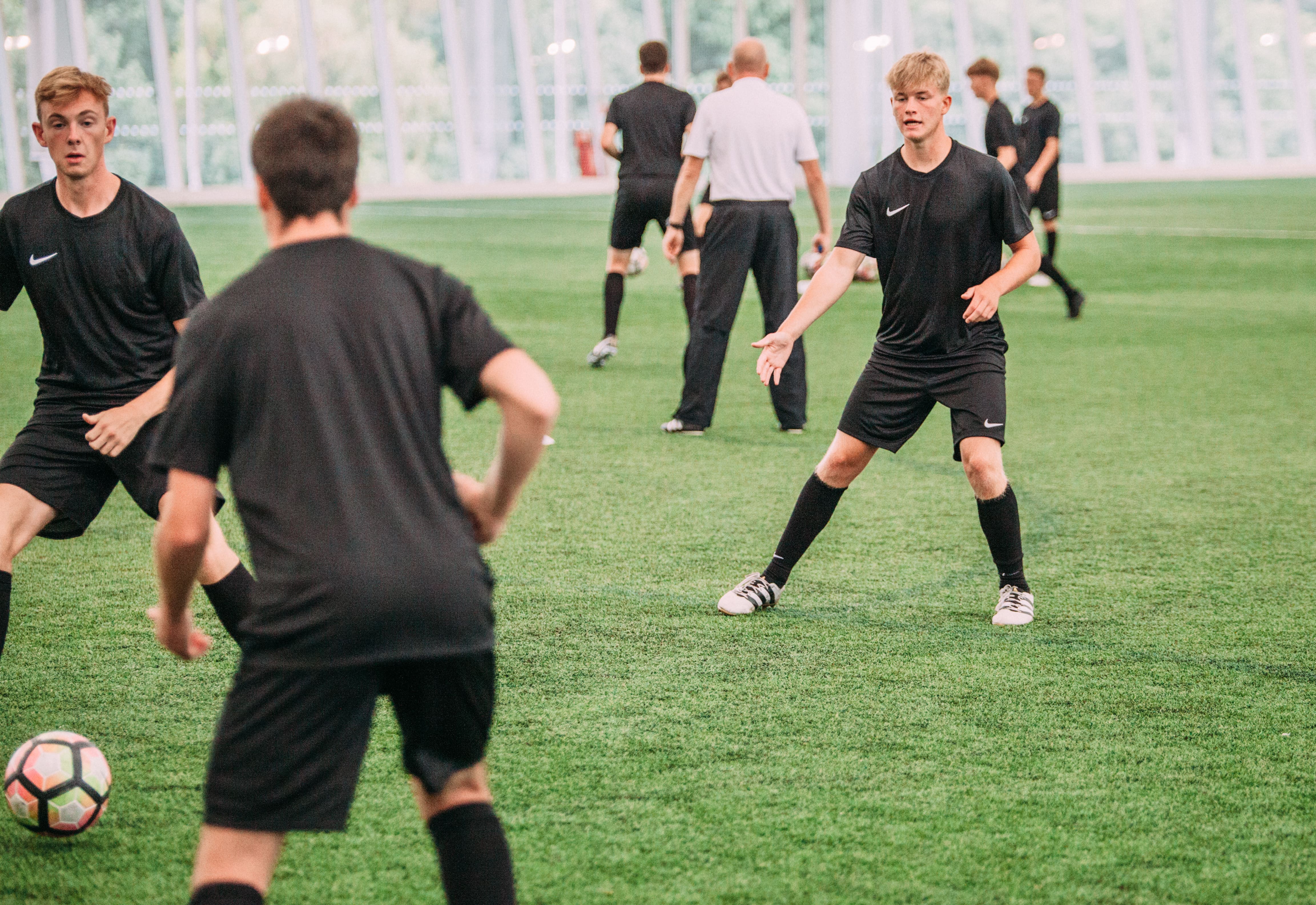Coaching youth soccer isn’t easy. Parents are upset that their children aren’t getting enough game time, or are being played in the wrong positions; results have been poor; and that next week of training sessions won’t plan itself.
With so much on their plate, it’s hardly surprising that your coaching team will occasionally make bad decisions, which can hamper their own enjoyment of the game and prevent your teams performing as well as they could. As a Director of Coaching (DOC), it’s up to you to help your coaches steer clear of these common pitfalls.
What are the most common mistakes a youth soccer coach makes?
Humans make mistakes. These mistakes can sometimes be a good thing, helping coaches to understand what they’d do differently if faced with a similar scenario in future. But if those errors aren’t identified, discussed and corrected early, they can quickly go from being one-offs to learned behaviours. Here are some common mistakes to look out for in your coaching team:
Focusing solely on results
Coaches often expect to be judged on results. But while win/loss ratios might be a useful metric of success at elite level, they’re less than helpful in youth soccer, where the bigger picture is far more important than the outcome of a handful of matches.
By fixating on results, coaches run the risk of harming player development. For instance, if training sessions are heavily weighted toward winning the next match, you miss out on the benefits of a structured coaching plan with clear, week-by-week progression.
Providing insufficient direction to players
Youth players are, by their very definition, not the finished article. They may have their own ideas on the game – particularly once they reach older age groups – but they need direction from a coach.
This direction shouldn’t just take the form of specific tactical instructions. Sure, it’s useful for players to understand what position they should be occupying on the pitch at any given time, but more importantly they need guidance on how to improve their performance over the long-term. After all, it’s unrealistic to expect a team of 11-year-olds to understand how they want to develop as players over the course of a season.
Failing to give positive feedback
Some of the most famous coaches of all time have been notorious for their quick tempers. In the world of professional soccer, a well-directed burst of criticism – whether delivered calmly or aggressively – can make a huge difference. But at youth level, coaches will get far more out of their players by highlighting positive behaviours.
Has one player adapted to a new passing drill especially well? Learned to play in a new position, giving more flexibility to your gameplan? Executed a training ground move during a match? Coaches should take the time to praise these actions, rather than criticising mistakes.
Forgetting to keep it fun
In a similar vein, your coaches aren’t dealing with teams of professionals who are making a living from the game. They’re looking after a group of youngsters who may be experiencing an organised sporting environment for the first time.
It’s easy to forget that part of the coach’s role should be to instill a lifelong love of the game. You want players to progress from age group to age group. There are plenty of other hobbies out there; if they don’t enjoy soccer training and matches – in short, if it’s not fun – there’s little incentive for them to keep coming back.
Being unprepared for training sessions or games
Your coaches only have a limited amount of time with players – probably just a couple of training sessions per week. If they’re going to achieve their player development goals, they need to make each session count. They simply can’t do this without adequate preparation.
Of course, coaches are busy. They have private lives and outside commitments that can intrude on their planning time. But if they’re unable to dedicate themselves to preparing sufficiently for each and every training session and match, you need to find out why and agree a solution.
Pushing individual players beyond their limits
Frustratingly for coaches, there’s no such thing as a “standard rate of development”. Whether physically, emotionally or technically, players improve at different rates, and your coaching team need to factor this into their plans.
Specifically, it’s not fair to push individual players beyond their natural level of development. A young player may be technically gifted, but if they’re small for their age, they may lack the endurance of their peers. Coaches need to take these differences into account, rather than adopting a one-size-fits-all approach.
Thinking they know it all
However experienced, no coach is ever the finished article. If a coach starts to believe that they have nothing more to learn about the game, it’s a clear sign that they lack the desire to continue improving.
How The Coaching Manual can help avoid these common errors
Some of the common mistakes we’ve discussed in this article are best overcome via speaking to your coaches one on one.
For instance, it’s up to you to keep coaches motivated and looking to the future. If they believe they’re already the finished article, it’s a sign that you haven’t analysed and communicated their strengths and weaknesses, or given them a clear development plan to guide progression.
However, many of the other issues highlighted in this guide can be overcome through better use of technology. The Coaching Manual is the perfect tool for the job, helping your coaches to avoid mistakes that could otherwise hamper player development by:
- Providing a structured coaching curriculum: Our season planning tool allows you to quickly and easily create a full season’s worth of training sessions, cutting down on preparation and ensuring that coaches focus on the right drills at the right time.
- Offering access to professional-quality coaching sessions: We offer a wealth of content tailored to specific age groups. Whatever your objective – passing, defending, playing through the thirds – our broadcast-quality training videos will help you to achieve it. And importantly, they’re fun too!
- Helping coaches plan new training activities: With our session planner, you and your coaches can quickly create new training drills to meet the needs of your players. Give it a go; we think it’s as easy to use as pen and paper. Share your best sessions throughout your coaching team to provide inspiration and help with their planning efforts.
Conclusion: Final thought
Coaching isn’t easy. As a DOC, you shouldn’t expect your coaches to be infallible. Instead, encourage them to understand why they made mistakes and think about what they can do to avoid them in future.
As with so much in life, planning is a big part of the battle. Lean on tools like The Coaching Manual to help your coaches prepare more thoroughly and manage their time better.



